
by Anne Mooney | Aug 1, 2020 | Custom Author, Headline, News
Commission Raises Tax Cap
But Will They Raise the Tax?
by Anne Mooney / August 1, 2020
At their July 22 meeting, the Commission set a tentative millage rate of 4.5623. That figure represents a cap, a not-to-exceed number, and it’s the first raise in 13 years. Between now and September 23, the Commission can decide to leave the rate at its current level of 4.0923, they can raise it a little, or they can raise it to the 4.5623 cap set at the July 22 meeting. Much depends on information the City still does not have, such as information regarding available funds from the state in FY 2021. Ultimately, those projections will depend upon the depth of the recession caused by the coronavirus pandemic.
Nothing is final until September 23.
Because each year’s budget is adopted by ordinance, two readings with public input are required. The first reading of the FY 2021 budget is September 9; the second and final reading is September 23. The FY 2021 Budget will be adopted and the final millage rate will be set when the Commission votes on September 23.
It’s not just the City that sets the tax rate.
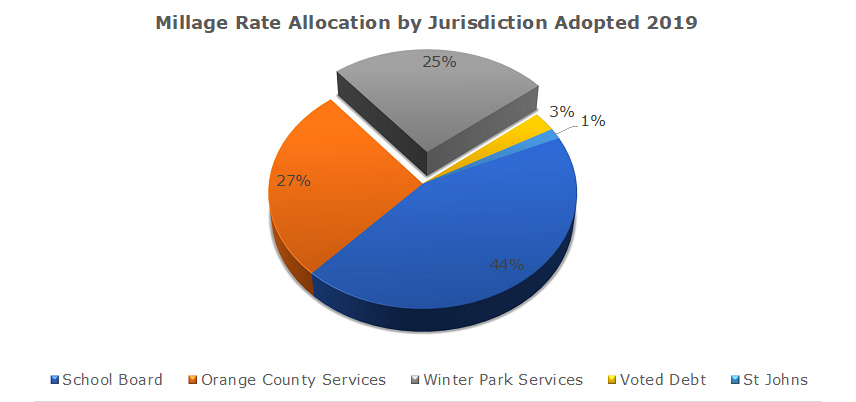
The City establishes the millage rate by creating a draft budget that seeks to balance projected expenses and revenues. Simultaneously, four other entities are doing exactly the same thing – each with eyes on our tax dollars. Our tax bill is based on a combination millage rates set by five entities — Orange County, St. Johns River Water Management District, the School Board, the City of Winter Park and the private debt created by Winter Park voters to build the Public Safety Complex and the Library-Events Center. These five millage rates will combine to form the rate we will pay on the assessed value of our property. The current rate for Winter Park is 16.3156.
Only about 25 percent of that total goes to support City services, while 44 percent goes to the schools and 27 percent goes to Orange County.
The economy has contracted in the pandemic.
According to Finance Director Wes Hamill, the City is currently facing a shortfall in 2020 of about $3 million due to the coronavirus pandemic. Hamill said he believes that by cutting costs, but without cutting services, there is still a good chance the City will break even by the September 30 year end. Some events, such as the Fourth of July parade, were cancelled because of the pandemic, thus saving those funds. Several open City positions have been frozen. If there is still a shortfall at the end of September, Hamill said the City will use reserves to cover the difference.
SunRail contribution postponed.
Hamill says he anticipates a $1.4 million decline in the FY 2021 budget from 2020. He did have one piece of good news, though. The City’s obligation to contribute to Sunrail has been delayed for two years, and will not begin until 2023.
Despite the doom-and-gloom spin circulating the blogosphere, the City remains in good shape. The proposed budget document points out, “Winter park is fortunate to have the lowest operating millage rate among major jurisdictions in Orange County.” A comparison of tax rates is below.
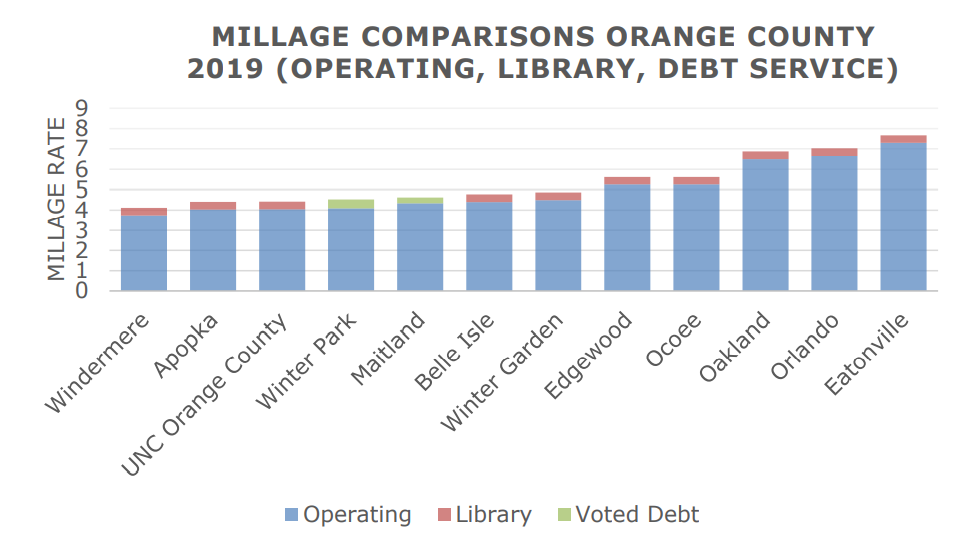
To review the entire 401-page document, click here. https://cityofwinterpark.org/docs/departments/finance/budget/proposed-budget-2021.pdf
What does this mean for us?
The chart below illustrates the impact a rise to the current Winter Park millage cap would have on the average Winter Park homeowner. (This does not include increases from the other four taxing entities.) The chart was prepared by Finance Director Wes Hamill and Assistant City Manager Michelle Neuner.

There is still much we don’t know about FY 2021projections, and these are very uncertain times. “If you asked us to guess on a hurricane, we’d be pretty good,” said Michelle Neuner. “This year, in a pandemic, it’s a little tougher.”
To comment or read comments from others, click here →
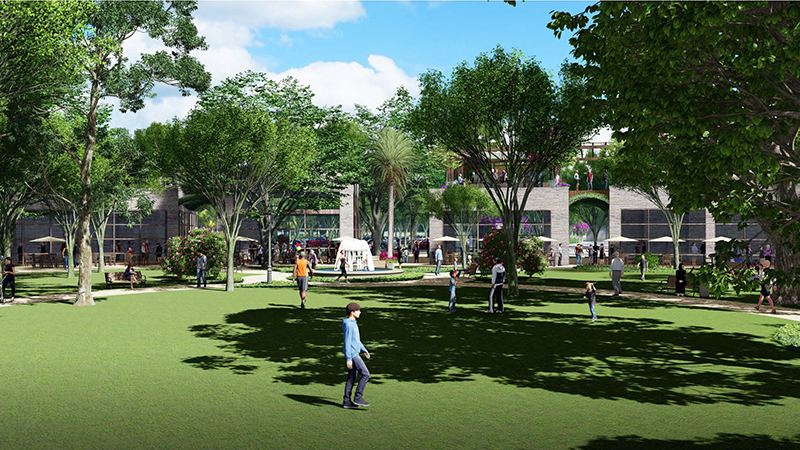
by Anne Mooney | Jul 27, 2020 | Custom Author, Headline, Visioning, Zoning and Development
Progress at Progress Point
Commissioners Explore What Progress Point Will Look Like
by Anne Mooney / July 27, 2020

Imagining Progress Point
Amidst the confusion and frustration surrounding the Orange Avenue Overlay (OAO), a Commission work session on Thursday, July 23, offered a glimmer of hope there might soon be progress at Progress Point. The work session centered around ideas of what could happen at the City-owned property located at the center of the proposed overlay district, roughly half-way between the two large properties at either end, one owned by the Holler family interests, the other by Demetree Global.
Progress on Progress Point.
Commissioners met Thursday to explore the possible fate of Progress Point – an empty, blighted parcel of land snugged up against the railroad tracks that the City acquired in the infamous land swap of 2011, when the City traded the old State Office Building parcel at the corner of Morse Blvd. and Denning Dr. for the Progress Point property on Orange Ave.
Commissioners plan to make plans.
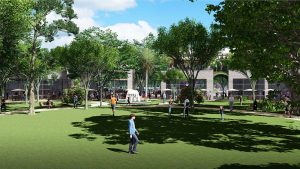 Since the meeting was a work session, the Commissioners could take no action. They did, however, agree upon what action they plan to take when the opportunity presents itself at the next commission meeting. Four Commissioners were present – Sheila DeCiccio, Marty Sullivan, Todd Weaver and Vice Mayor Carolyn Cooper. Mayor Steve Leary was absent.
Since the meeting was a work session, the Commissioners could take no action. They did, however, agree upon what action they plan to take when the opportunity presents itself at the next commission meeting. Four Commissioners were present – Sheila DeCiccio, Marty Sullivan, Todd Weaver and Vice Mayor Carolyn Cooper. Mayor Steve Leary was absent.
After a joint presentation by a consortium that included ACi architects, LandDesign, HR Miller Landscape Architect and Steve Goldman about what Progress Point could look like, were the City to go that direction, the Commissioners agreed upon six basic principles that would guide their decisions regarding Progress Point.
What’s planned for Progress Point?
The City will maintain control and ownership of the property, though the Commissioners said they would consider the possibility of a land lease to a private developer or to a non-profit concern created specifically for the purpose. No residential property will be built on Progress Point. The parcel will contain approximately 1.5 contiguous acres of green park space and a 12-foot-wide bike path along a relocated Palmetto Avenue. Businesses in any structures built on the parcel must enhance the park experience for residents and visitors. The City will realign Palmetto Avenue, moving it south, closer to the railroad tracks, to provide more contiguous land for parking and the 1.5-acre park.
The Commissioners allocated $150,000 for the engineering and design necessary to relocate Palmetto Avenue, build surface parking and the pedestrian/bicycle path. This will enable planners to determine what infrastructure improvements will be needed to support the types of businesses that would be appropriate for that site. An additional $10,000 will go for a plan to connect the urban park spaces throughout the City of Winter Park.
This chapter of OAO history begins with OAO Steering Committee. (This is not Chapter One.)
In late 2019, after a lengthy series of meetings and public input, a 10-member OAO steering committee submitted their recommendations to the City for the adoption of an ordinance to create the OAO. The steering committee voted 8-2 in favor, with Michael Dick and [future] Commissioner Sheila DeCiccio dissenting. Michael Dick felt development entitlements for the two large property owners were overly generous. Ms. DeCiccio objected to the city planners’ idea of selling the Progress Point property to a developer for office space and a parking garage that would contain extra parking to be shared with surrounding small businesses. Instead, DeCiccio wanted the City to retain ownership.
First Reading January 13 – 16, 2020.
The ordinance to create the OAO went to the Commission on January 13 for its first reading. That Commission meeting, which began January 13 at 3:30 pm, lasted until approximately 2:30 am January 14, and was continued January 16 for another five to six hours. The ordinance, which included provisions for the 1.5-acre park, passed on a 3-2 vote, with Mayor Leary and Commissioners Sarah Sprinkel and Greg Seidel supporting, and Commissioners Carolyn Cooper and Todd Weaver dissenting.
Approved on Second Reading ‘as amended’ March 9.
The OAO ordinance was sent to Tallahassee for approval and came back to Winter Park for its second reading March 9. At the March 9 Commission meeting, the ordinance was approved as amended – there were more than 50 amendments.
New Commission March 17.
On March 17, a new Commission was elected. Commissioners Sarah Sprinkel and Greg Seidel did not seek re-election, and Commissioners Sheila DeCiccio and Marty Sullivan took their places. By then, the novel coronavirus pandemic had set in, delaying the swearing-in of the new Commissioners until March 27.
Ordinance rescinded March 30.
On March 30, the newly-seated Commissioners rescinded the OAO ordinance. Their stated intent was not to kill the OAO, but to revisit some of the rules and regulations regarding the density, size and height of new development, particularly on the larger properties. Commissioner DeCiccio also wanted to make sure Progress Point remains under City ownership.
City Sued April 24 and May 12
On April 24, Demetree Global filed suit against the City as WP Station Tower, LLC, Winterpark Station, LLC, Wintergate, LLC, and Palmetto Building 2019, LLC. The Holler properties, as DI Partners, LLLP, and CVJCR Properties, Ltd., LLLP filed suit shortly after, on May 12. The complaints request the courts to declare the ordinance rescinding the OAO null and void.
City declares temporary moratorium July 22.
While there is no restriction on development within the OAO under the City’s current zoning rules, the temporary moratorium prevents new OAO development based on the regulations in the rescinded OAO zoning plan. The moratorium is expected to last until the current Commission comes up with a revised version of the overlay plan.
Commissioners have scheduled a series of work sessions throughout the remainder of the summer to come up with a plan to move forward on development rules for the OAO district.
The process of creating the Orange Avenue Overlay is far from over. What happens at Progress Point may well be the first step.
To comment or read comments from others, click here →

by Anne Mooney | Jul 13, 2020 | Custom Author, Election, Headline
Primary Elections – August 18
Do Not Ignore This One — Get Out and Vote!
by Anne Mooney / July 13, 2020
While everyone’s attention is focused on the November elections, the August 18 Primary Election will also have an immediate and lasting impact. Mark your calendars and get out and VOTE.
Register to Vote
The deadline to register to vote or to update your party affiliation for the August 18 Primary is July 20. You can do this online at RegisterToVoteFlorida.gov, or by phone by calling 407-836-2070. You can go in person to any driver’s license office, the Winter Park Public Library, or the Orange County Elections office at 119 W. Kaley St., Orlando FL, 32806.
Vote by Mail
The deadline to request a Vote by Mail ballot is August 8 at 5:00 pm. You can request a Vote by Mail ballot online at ocfelections.com, by phone at 407-836-8683 or by email at voter@ocfelections.com.
Early Voting
If you prefer to cast your ballot in person before Election Day, go to <ocfelections.com/early-voting> to find an early voting location that is convenient for you. Unlike on Election Day, when you must vote at your assigned polling place, you can vote at any early voting center. Early voting dates are August 3 – 16. Note the locations, dates, and hours of operation on the <ocfelections.com> website. Be sure to bring photo and signature identification.
What’s on the Ballot?
In addition to several partisan races, there are five non-partisan races, so what appears on the ballots will depend upon your party affiliation.
Republicans will vote for the Congressional Representative from District 7, a State Committeeman, a State Committeewoman, four judges for the 9th Judicial Circuit and a member of the School Board.
Democrats will vote for State Attorney, Sheriff, Property Appraiser, four judges for the 9th Judicial Circuit and a School Board member.
Those with No Party Affiliation will vote only for the School Board member and the four Circuit Court judges.
You can confirm your voter status and find your polling place on the ocfelections.com website. If you have questions, call 407-836-2070 and someone will be able to assist you.
To comment or read comments from others, click here →

by Anne Mooney | Jun 30, 2020 | Custom Author, News
Change is Necessary
by Mary Daniels / June 30, 2020
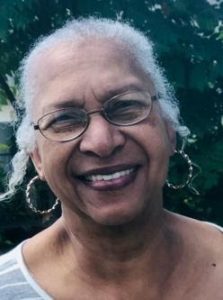 Events since the death of George Floyd at the hands of Minneapolis police have raised more questions than answers. Floyd’s death seems to have been the proverbial ‘straw that broke the camel’s back.’
Events since the death of George Floyd at the hands of Minneapolis police have raised more questions than answers. Floyd’s death seems to have been the proverbial ‘straw that broke the camel’s back.’
What to do? First, we examine those questions. The answers will come when we are able to engage in honest conversation about the systemic racism that has plagued our culture for 400 years. The black community is not the only community to suffer from racial injustice, but it is my community and the community for which I can speak authentically.
What can we do?
One has to look deep within oneself and acknowledge the fact that the problem has and does exist. No problem can be solved unless you can first truly acknowledge that there is a problem.
Does one have to ask why “Black Lives Matter”?
Black lives have NOT mattered in this society’s system for 400 plus years, when our ancestors were first brought here as slaves in the hulls of ships in inhumane conditions.
The institution of slavery created systemic racism.
We’ve all been told for years that our system works. “If it’s not broken why fix it? it’s worked for years!” Yes, but for whom does it work? And who is being disenfranchised by our system?
Who needs to worry they might be killed while they’re driving, jogging or simply walking home? Should a doctor unpacking his car in the driveway of his home be worried? Should you be worried, sleeping in your bed, that authorities with no warrant and without announcing who they are will break into your house and open fire?
On May 25, George Floyd, a 46-year-old black male, was murdered on national TV in Minneapolis, Minnesota.
Mr. Floyd was handcuffed by a white police officer who had his knee on Floyd’s neck for eight minutes and 46 seconds. Mr. Floyd was crying he couldn’t breathe, asking for help and calling for his [deceased] Mom.
While Officer Chauvin knelt on Floyd’s neck, looking into the middle distance with his hands in his pockets, and while two other officers knelt on Floyd’s back and a fourth officer stood by watching, George Floyd took his last breath.
If this brutal act of murder did not touch everyone, there is definitely something wrong. This ls one of many such events across this nation. And they continue.
Winter Park finally speaks in a soft voice.
On June 4, ten days after Floyd’s death, Winter Park Chief of Police Michael Deal posted a message on cite-news stating the City of Winter Park was committed to de-escalation and has banned excessive use of force, such as the use of choke holds.
On June 24, City Manager Randy Knight posted a letter on the city website on behalf of the Mayor, Commissioners and Staff as a follow-up to the June 22nd Commission meeting. The mayor himself has never spoken.
Being silent sends the wrong message.
Although conversations on racism are difficult, especially for white people, we can start the process by reaching an understanding that black people did not create racism.
Black people were thrown into it by being brought over in the hulls of slave ships and sold as chattel to slave owners. They suffered inhumane treatment, raping of the ladies and their daughters, and filthy congested conditions. The males, for sale to slave owners like cattle, were seen as inferior because their skin was black.
These captives were stripped of their culture, their birthright and even their names. As slaves, they were required to assume the surnames of their new masters.
What was my great-grandfather’s name?
These were people who were good enough to breast-feed your white babies, raise your white kids, cook your food, clean your homes, wash your clothes, plant and harvest your food — but not good enough to sit at a table and share a meal with you or sit next to you at Church or at a restaurant or on a bus.
The color of our skin, that beautiful brown and black complexion, that color you yearned for when you sat in the sun to get a tan, was what made black people perceived as something dirty and inferior.
How does this 400-year history of systemic black oppression play out within the context of the history of Winter Park?
Black Men Mattered in 1887, when the Town of Winter Park was incorporated.
At that time, there were not enough registered Democratic white voters for the community to become a town. One black man, Gus Henderson, editor of Winter Park’s first newspaper, The Advocate, rallied the black Hannibal Square Republicans to march across the tracks after sunset to exercise their voices and their right to vote. It was the black Republican vote that secured the incorporation of Winter Park as a town.
Walter B. Simpson, a land-owner, was elected Alderman and served from 1887 to 1893.
Frank R. Israel, a land-owner, also served as Alderman from 1887 to 1893.
De-annexation
Once the white power brokers had achieved their goal of incorporating the Town of Winter Park, they sought to overturn the election results because they did not want blacks to serve in any governing capacity. Initially they failed. Later succeeding, they finally were able to remove the Hannibal Square community from the town limits. Hannibal Square, as a whole, was kicked out of the Town of Winter Park.
Re-annexation
Thirty years later, in the 1920s, Winter Park still lacked the required number of registered voters to achieve their new ambition to become a City. Once again, they needed those black Republican voters. So the Hannibal Square community was brought back and restored as part of the City of Winter Park. The rest is history. No black man or woman has served in an elected capacity since 1893.
Black Women Matter.
Some 50 years ago, a black woman, Mary Allen Howard, ran for City Commission. She was told she would never win. In 2019, 50 years after Mary Allen Howard’s unsuccessful bid, a young black Winter Park entrepreneur, Barbara Chandler, also ran for a City Commission seat. Chandler is the manager of the Hannibal Square Heritage Center. She lives in Winter Park.
In the course of her work, Chandler learned the history of the Hannibal Square community, which has had no representation since 1893. As she continued to meet the residents, Chandler became concerned and inspired. She asked herself, ‘what I am doing to make a difference to help eradicate such disenfranchisement through systemic racism?’ Barbara’s campaign for a commission seat, though not successful, made an impact and hopefully has inspired others to be involved and to claim a voice in the city’s governing body.
Fairolyn Livingston, Chief Historian of the Hannibal Square Heritage Center, was
born in Winter Park, attended Hannibal Square Elementary, Hungerford High School, and Howard Community Jr. College. She graduated from Rollins College.
Fairolyn has researched and interviewed every contributor to the permanent collection of Oral & Pictorial History exhibits at the Hannibal Square Heritage Center. She oversees the project in which she records residents and documents their rich history in the Hannibal Square community. I often tell her she is a walking encyclopedia. The Hannibal Square Heritage Center is a program of the Crealde School of Art. Everyone is welcome to come there and learn the history of what was a thriving community.
All Lives Matter
I have heard people respond to the “Black Lives Matter” movement by saying, ‘All lives matter.’ All lives do matter – but in our current system, black lives matter less. That is wrong!
What is my Name? Can you see me? Yes, I am still HERE in 2020!
My name is Mary Daniels. I am beautifully Black! I Matter!
Yes, “BLACK LIVES MATTER”!
SILENCE Is Not an Option. Change Is Necessary. We Are ALL Humans and We All MATTER!
Mary Daniels is a citizen of Winter Park. About who she is, Mary writes, “All that anyone is came from the beginning ancestors Adam & Eve. So then, who are we blacks, and even more importantly, who are you whites – and all the different races of the world? We breathe, bleed and have the same organs as all other human beings. I make no apology for my being born black, my culture and heritage of being a strong, respectful, beautiful woman of color.”
To comment or read comments from others, click here →

by Anne Mooney | Jun 26, 2020 | Custom Author, Zoning and Development
OAO Email Mystery Solved
by Anne Mooney / June 26, 2020
Winter Parkers who received an email titled “Winter Park, Winter Garden. A Tale of Two Winters,” bearing the Winter Park city seal superimposed by the words “Orange Avenue” and including the Notice of Public Hearing from the June 21 Orlando Sentinel were understandably mystified.
Readers Ask: Where Did This Come From?
 At first glance, the email appeared to have been sent by the City of Winter Park. However, the body of the email contained an unfavorable comparison of Winter Park to the city of Winter Garden. Adding to the confusion was a call to action toward the end of the text, urging recipients to contact the Mayor and Commissioners and to attend a public hearing July 7th.
At first glance, the email appeared to have been sent by the City of Winter Park. However, the body of the email contained an unfavorable comparison of Winter Park to the city of Winter Garden. Adding to the confusion was a call to action toward the end of the text, urging recipients to contact the Mayor and Commissioners and to attend a public hearing July 7th.
Email from Demetree Real Estate Services
Communications Director Clarissa Howard, who was not aware of the email until she received a query from the Voice, said she did not know who had sent it. She quickly looked into the matter and discovered the email had come from the Demetree Real Estate Services Constant Contact account. Demetree Real Estate is one of two large landholders within the Orange Avenue Overlay.
Howard fired off an email advising the sender, “Using this official city image in your messaging misrepresents your communication as information produced and distributed by the City of Winter Park.”
Second-degree Misdemeanor
In her email, Howard cited city code, Section 2-4: “As provided by law, the manufacture, use, display or other employment of any facsimile or reproduction of the municipal seal, except by municipal officials or employees in the performance of their official duties, without the express approval of the governing body is a second degree misdemeanor, punishable as provided in F.S. § 775.082 or 775.083, as the same may be amended. The city manager, or his designee, is delegated the authority to grant permission to others to use the seal.”
Howard’s email concluded, “Absent of our expressed approval, I respectfully ask that you refrain from using the city seal in any of your messaging tools. Please let me know if you have any questions. Thank you.”
Temporary Moratorium
At issue is the Demetree organization’s opposition to a proposed ordinance placing a temporary moratorium on development within the Orange Avenue Overlay district until the current City Commission is able to craft an Orange Avenue Overlay ordinance to replace the one that was rescinded in April of this year.
Demetree company representatives did not respond to requests for comment.
To comment or read comments from others, click here →
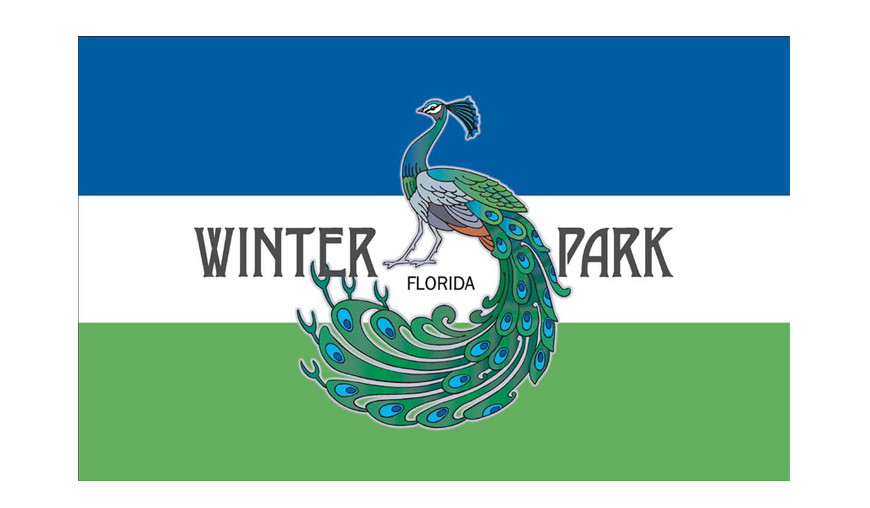
by Anne Mooney | Jun 24, 2020 | Custom Author, Events
Commission Moves to Wednesday
City Advisory Board Appointments Announced & Explained
by Anne Mooney / June 24, 2020
Starting with the July 8 meeting, regularly scheduled Commission meetings will move from the second and fourth Monday to the second and fourth Wednesday of each month. Meetings will continue to begin at 3:30 pm.
The move will avoid conflicts with holidays that are celebrated on Mondays and will facilitate those popular long weekends.
Virtual Meetings Through July
Commission meetings will continue to be virtual through the end of July, based on Governor Ron DeSantis extension of Executive Order 20-69 allowing virtual meetings of local governments to continue.
New Board Appointments Across the Board
The process of appointing members of City Advisory Boards changed with the adoption in March of revisions to the Winter Park City Charter. Formerly, the Mayor made all advisory board appointments, with the approval of the Commission. Now, all boards have seven members; three members of each board are appointed by the Mayor and one member is appointed by each of the four Commissioners.
Transition Appointments – happens only once in 2020
It seems 2020 has thrown everything into a cocked hat, and there will be no exception in the matter of board appointments. The amended Charter dictates that Board members serve “at the pleasure” of the appointing Mayor or Commissioner, and their terms will run concurrently with the Mayor or Commissioner making the appointment. Each board member is limited to two three-year terms on a particular board.
This means, since Mayor Leary has only one year left to serve in his current term, his board appointees also will have one-year terms on that board. Similarly, appointees named by Commissioners Cooper and Weaver will have two-year terms.
Hang in there . . .
At Monday’s meeting, the Commission decided that the one-year appointments will be considered ‘partial terms,’ and will not count toward the two-term limit, allowing these appointees two full three-year terms in addition to the one-year term granted by Leary.
Two-year terms, however, will be considered full terms and will be eligible for only one further term on that board. This condition applies to Cooper’s and Weaver’s appointees.
Fortunately, we will encounter this situation only once, since the newly-seated 2020 Commission decided in April to release all board members from their current appointments and to begin fresh with all new May appointments, which are beginning in June because of the pandemic.
However they got there, and for however long, we owe a debt of gratitude to the people who have agreed to serve the community on the various Advisory Boards. Here is a link to the new slate.
DeCiccio Named to Library Board of Trustees
Commissioner Sheila DeCiccio was named to the seat on the Library Board of Trustees that is traditionally occupied by a member of the Commission. The seat was previously held by former Commissioner Sarah Sprinkel.
To comment or read comments from others, click here →














Recent Comments